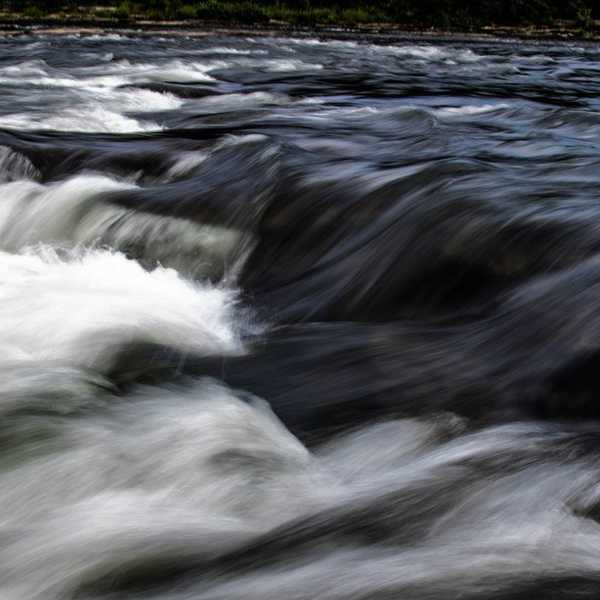Around 1,300 people die from hypothermia every year in the United States. Hypothermia is medical condition that occurs when your body is losing heat faster than you can produce it. This article chronicles what that experiences feels like.
Whenever I'm discouraged in my life I go to the woods. Doesn't matter if I'm bored, confused or heartbroken, the wilderness has always been my escape. This was in part the motivation for my trip to the north shore of Lake Superior over winter break. For weeks my cousin and I had anticipated this trip. The going was tough, but the view beautiful. It started off as a great trip, but I was overambitious. As hard as we pushed ourselves up the mountains, searching for purchase beneath the snow, the sun kept slipping lower and lower on the horizon. After traveling nine miles across difficult terrain, we glimpsed the last rays of the dying sun as it disappeared behind the alien hills. We were still several miles from the campsite.
Stage 1
The temperature quickly dropped to zero, with windchill stripping away an additional 20 degrees. I could feel my sweat freezing on my skin. We struggled to start a fire, but but the sinking temperatures had caused all the substantial fuel to frost over. During the onset of hypothermia, the body starts with drawing blood from the extremities in order to conserve warmth around the core, in an effort to keep the vital organs functioning. The result is cold hands. As the temperature continued to drop I began to feel colder and colder, beginning with my extremities. My hands fumbled on the zipper of my trouser pocket. Without feeling to guide me, I searched inside my pockets for my lighter. I could barely press the button to turn it on. Another symptom of hypothermia; loss of general motor control.
Stage 2
My cousin had taken over the project of trying to nurse our pile of smoldering kindling into a blaze. I reeled around, staring blankly, knowing that taking action was an issue or life of death. It's like I was so cold even my mind was freezing. As hypothermia worsens, Mayo Clinic says, a victim can experience drowsiness, confusion, and a lack of appreciation for the gravity of ones situation. Often victims are not even aware they have hypothermia because the progression of symptoms is so gradual. I couldn't tell you when I started shivering, only that it was rhythmic and uncontrollable. I'd long since lost any functional control over my hands when I struggled to open the packs, biting the quick release buckles and dragging the zippers open between chattering teeth. Having to face the possibility that a fire may not happen, I was trying the best I could to set up shelter and sleeping bags where we could bed down, and hopefully survive until morning. Don't ask me how I managed to set up our two double layer sleeping bad and lined sleeping bags with out working fingers, but I did.
Stage 3
Severe hypothermia is characterized by extreme fatigue and a lack of concerns about one's position. In the final stages a victim will stop shivering. I had stopped shivering. I asked my cousin if it would be alright if I "tried out the sleeping bags to see if we could survive". The bags were rated for zero degrees and had liners, but we were exposed on a mountain face, and the wind blew right through. Struggling out of my boots and outer layers, I stripped off my soaked outer layers and cocooned myself in the bag. I couldn't feel my feet. Well, it wasn't so much that I couldn't feel them, it was that I could feel their' absence. I felt so tired. So sleepy. I started laughing, I don't know why, but I couldn't stop, it was uncontrollable, giggly, manic, laughter. The wind was terrible. I should just go to sleep, I thought, just close my eyes and let the warmth drift over me.
Endure and Survive
If not for my cousin that likely could have been the end of it. Scrunched in his sleeping bag with a hand crank flashlight he consulted the map. He located a snowmobile trial located about a half mile down hill from our location. Five miles down that trail was a highway. He decided that we should try to make it there. Making sorties out of our sleeping bags, we donned every dry stitch of clothing we could find as quickly as we could. Each unnecessary second could cost us a toe. We couldn't afford to take anything with us. Our boots were frozen solid. We had to cut the laces off with knife and crack them open in order to get our feet in. We stumbled down the mountain, five miles through the snow leaving $5,000 worth of gear at our camp. The trees danced in the snow like ghostly specters, laughing at us in the dark. We eventually got the highway, and managed to hitchhike to a hotel. My insides felt funny, especially my heart. Something was just off, irregular. I wrapped myself in blankets, turned the heat all the way up, and went to sleep.
I got frostbite on my toes, and frostnip on my fingers. We both kept all of our appendages, and made full recoveries, even if it took a couple days to recover. Hypothermia is an experience I will not soon forget, but my passion for outdoor winter adventure and camping is undeterred.






















